- Home
- Darrell Maloney
An Acquired Taste Page 15
An Acquired Taste Read online
Page 15
There was nothing John could do to help Mary. He could pray for her, hope she was in a better place, pain- free and in a world where she no longer had to be afraid.
Other than that, she was only a name to him.
And a piece of an unsolved puzzle.
Things weren’t looking well for Rose McGlory.
The fact there hadn’t been a struggle in her hotel room had been a good thing. So had the fact he hadn’t found any blood there.
It didn’t necessarily mean harm hadn’t come to her at another place. But it was something to pin his hopes on.
He wouldn’t know for sure until he found her alive and well.
Or found her corpse.
He left East Quincy Avenue and took a shortcut between two high-rise office buildings to return to the Riverwalk.
The Riverwalk was below street level. Rose’s room was on the river level. Anyone who’d murdered her in her room would likely have disposed of her body along the river somewhere, instead of carrying it up thirty six steps to the streets of downtown San Antonio.
His search wasn’t scientific, nor was it guaranteed to yield results.
In the absence of a cadaver dog, he’d have to rely on his own sense of smell.
Both sides of the river, like every other part of the city, was covered with intermittent piles of smelly garbage.
It was mostly bagged, as it was easier for the survivors to carry bagged garbage than loose items. And it was largely intact, for most of the stray dogs which once would have torn the bags to shreds had been killed and eaten by now.
All garbage smells, of course. But a decaying human corpse had its own distinct stench. John was well aware of it, and thought he could spot it if it wasn’t buried too deeply.
Knowing what decaying bodies smelled like was something he had in common with every other survivor.
His plan was to work his way up one side of the river for a quarter mile or so, assuming no one would walk much farther than that if they had a body to dispose of.
If he didn’t come across it by then he’d cross one of the pedestrian bridges to the other side and come back the other way.
John seldom hoped for a particular outcome as he worked his cases. Not anymore. His wishes almost never played out, and by wishing he knew he was just setting himself up for great disappointment.
But in this case he made an exception.
He should have asked Rose’s friends if she’d ever wandered off in the past. Many older people did. Especially if they were afflicted with Alzheimer’s or dementia.
He should have asked if she had any other close friends in the area she might have gone to visit.
He was hoping against hope that she wasn’t dead. That maybe she wasn’t really missing. That maybe she’d just walked away and never thought to tell anyone she was leaving.
He walked past Rose’s hotel and encountered a couple of her neighbors. They asked him if he’d found anything.
“No. I’m searching for her remains. Has anyone gone through the lower floors of the hotel? She may have been placed inside an unused office or storage room.”
“A couple of the men are doing that now.”
“I’ll return within an hour or two. If we haven’t found her body by then, odds are she’s still alive. If she were killed, her killer wouldn’t have taken her far.”
The neighbors looked at one another. His comment seemed to give them a little bit of hope that Rose might still be alive.
He hoped he hadn’t inadvertently set them up.
John stopped to tie his shoe at the seating area of the Arneson River Theater.
The theater had been there for generations, a quaint little open air theater with grass terraced seating on one side of the river and a tiny stage on the other side. John remembered going there when he was a small boy with his family and a dozen times since.
On the other side of the river, behind the stage, was the tree where he’d carved his and Hannah’s initials on the night he proposed to her. They were still there, he knew, with a big heart carved around them.
On another day, under other circumstances, he’d have crossed over and inspected the tree. Smiled and enjoyed the nostalgia.
But now was not the time for such frivolity.
Now he had another mission, another task far more important, and far more gruesome, than remembering the night he pledged his forever love to Hannah.
It was slow going. There was an awful lot of garbage piled along the river bank.
Most of it was in piles, but not all of it.
As he walked along he was on the alert for large trash bags. The fifty gallon size, normally used by landscapers and maintenance people. Only those were large enough to accommodate a full-sized body without cutting it into pieces.
And he prayed silently to himself Rose McGlory hadn’t had to suffer that indignity as well.
Mostly he used his nose, frequently burying himself in the piles of bags trying to catch a familiar scent, and hoping at the same time he wouldn’t.
After an hour he was a quarter mile from Rose’s hotel and was looking for a bridge to cross over to the other side.
It was then the scent he’d been dreading finally caught his nose.
“Damn it!”
-43-
The emerald green water of the San Antonio River is murky. So murky that tourists can’t see its bottom even when peering over the water’s edge.
Most tourists are surprised to learn the river, in most places, is only about four feet deep at the river’s center.
There are some exceptions. Just off the main part of the original Riverwalk is a huge flood gate which closes when waters upstream begin to rush into the downtown area. The closed flood gate allows the extra water to bypass the tourist area and prevent flooding, and the area around the gate is twenty feet deep.
For the rest of the Riverwalk, an adult can easily walk across the river.
He or she wouldn’t smell very good when they reached the other side, but they could do it.
John knew this because it was his habit to come and enjoy the spectacle each February when the city drained the river to clean it. Back in the days when things were normal.
It had become a tradition to perform such maintenance each February, typically the slowest month for tourism each year. John was so fascinated by the event he volunteered to help with the cleaning.
Each year city crews collected all manner of things, from restaurant chairs to beer bottles to wallets and purses. In recent years cell phones outnumbered the wallets. So did cameras in some years.
They never found any bodies, though.
Not until today.
When John’s nose caught the foul stench of rotting flesh his eyes immediately followed it to its source: a black heavy duty trash bag half-submerged in the center of the river.
And knowing the river was shallow enough to wade across, he wasted no time walking out to retrieve the bag, and to float it back to the shore.
Once it was back on land, he ripped the bag open to find the remains of one Rose Marie McGlory, age 65, according to the Texas driver’s license he held up to her face for comparison purposes.
There was a silver cross around her neck. It was the same style John’s grandmother had worn every day of her adult life. And buried with her when her life finally came to an end.
John’s grandmother was a die-hard Catholic, and John made an educated guess Rose was as well.
Kneeling beside her, he said a brief prayer over her.
There was something else around her neck.
Something considerably uglier than the silver cross.
It was the blue bandana her killer had used to strangle her to death.
Now such evidence, had John presented it in a court of law, would have immediately been thrown out. John would have been ridiculed for even having the gall to present such evidence. Not only was it circumstantial, it was also as flimsy as flimsy could be.
But to John it made perfect
sense.
For it was eerily similar to the bloody blue bandana he’d found tied to the saddle horn of Rhett’s horse Lucky the day Lucky came back without him.
It was also very similar to the blue bandana Big Boi had around his neck when he very stupidly chose to engage John in a gun battle.
Sure it was circumstantial. But to John the bandanas tied everything together. They tied Big Boi to Rhett’s assault and to Rose’s murder.
And by extension almost certainly to the murders of Nancy Fontenot and Mary Graves as well.
It wouldn’t have stood up to the strict evidentiary standards in a court of law.
But then again, it no longer had to.
The world had changed in so many ways.
One of them was that men like John Castro, the good guys, had much greater discretion when it came with guys who weren’t so good.
His case was closed.
In his mind, Lamar Taylor, AKA Big Boi, had left a wide swatch of evil in and around the confines of his beloved San Antonio.
But he would do no more of it, and he’d paid a very heavy price for his deeds.
He wouldn’t be missed.
-44-
They were gathered around the river level entrance to the La Mansion Hotel, awaiting John’s return. La Mansion had been one of the five-stars before the world went dark. A favorite destination for many of the world’s rich and famous. One of the crown jewels of San Antonio’s Riverwalk.
It still held most of its luster, even after two years of chaos had changed its clientele from international movers and shakers to everyday survivors scratching to get by.
But it was still a choice place to live for those lucky enough to have found quarters there.
And here they’d gathered, holding John to his word to return after he’d finished his search.
He’d made a mistake by telling them if he wasn’t back within a couple of hours their friend Rose was probably still alive.
Logically speaking, he’d made good sense. He just didn’t think a killer would carry a body very far to dispose of it.
He’d simply never considered the possibility that killer would dispose of the body in the river.
And that the body might slowly drift so far away.
When John came into view, they seemed to instantly know. He was too far away to see the expressions on their faces, but not too far to read their body language.
One man, sitting on an old stone wall, simply dropped his head into his hands. Another woman got up and stormed away.
Only one of Rose’s friends was verbal.
It was Toni, the woman who’d coaxed John into searching the hotel room.
She wailed “No!” and burst into tears.
John was momentarily puzzled. For he was still a hundred yards away from them when he rounded a bend in the river and came into their view. Just as he was too far away to read their faces, they were too far away to read his.
Yet they somehow knew.
But how?
Then the sloshing in his shoes reminded him he was soaking wet up to his chest.
And he’d have come to the same conclusion were the situation reversed.
He’d have seen the searcher returning from his mission soaking wet, and wondered what in the world might have required him to go wading in cold and murky waist-deep waters.
And he too would have decided there was only one such thing.
Retrieving a body.
They’d put two and two together and come up with four. There was simply no other reason for him to look the way he did.
Three of the men approached him. One of the men he recognized from the hallway outside of Rose’s hotel room. The other two, younger men, were strangers. But they had the same walk and features as the older man. John got the sense they were his sons.
The older man asked, “Where is she?”
John stopped and motioned, then said, “Down river a quarter of a mile. I pulled her from the water and put her on a grassy plot in front of O’Reilly’s pub. It’ll make a good gravesite for her, unless you’d rather take her up to street level and have the city dispose of the body. If that’s how you want to handle it, tell me now and I’ll send a crew.
“No,” one of the younger men said. “She deserves better than that. We’ll bury her next to the river.”
John didn’t know the relationship the three had with Rose McGlory, but got the sense they were close.
The blackout had brought out the worst of people in a lot of ways. But in a lot of cases it brought back a sense of community which had left American cities in recent generations.
It wasn’t always the case, but in cases like the residents of the Riverwalk hotels, places like Baker Street, and neighborhood block communities all over the city, certain groups had banded together to form families. They defended one another, cared for one another, had each other’s backs.
“Do you have shovels?” John asked them.
“Yes. There are several in the landscaper’s room at the hotel.”
“Officer… you said your name was John?”
The query came from the older man, who had him at a disadvantage. John couldn’t remember his name at all.
“Yes. John Castro.”
The man extended his hand, and John took it.
“I am Pete Sanchez. These are my sons, David and Saul. Thank you for helping us find her. And for punishing the bastard who killed her. She was a wonderful woman. Many of us considered her almost a saint.”
“Any idea how she got mixed up with Lamar Taylor?”
“Can’t say for sure, but I can give you an educated guess.
“She was a kindly spirit who was always looking to help others. She taught many of the other women how to fish, and then encouraged them to teach others. She taught herself how to hunt squirrels, not with a gun, because she deplored guns. But with a cheap souvenir sling shot she got at one of the shuttered souvenir stands. She’s the one who came up with the idea to haul dirt to the upper floor balconies and the roof of the hotels…”
David, one of the sons, seemed to choke, then laughed it off.
“Dirt?” John asked.
“Yes. She talked a lot of our young men with free time on their hands to build large planter boxes on the balconies and the roof. Then she had them carry buckets and buckets of dirt up the stairs, and to place it into the boxes…”
David interrupted his father.
“I carried my share. At least ten thousand tons. But we all reaped the benefits of her idea. Now we’re able to grow a large portion of our own food. And since it’s all higher than the third floor it’s inaccessible to strangers who might come along and want to steal it. We keep our stairway doors locked at night, you see, and nobody’s willing to climb up the side of a building in darkness just to steal a handful of tomatoes.”
Pete continued.
“She was the matriarch of our society. She gave us spiritual guidance, as well as a lot of great ideas we needed to survive. She shared with us the wisdom she’d gathered through a lifetime of helping others, and encouraged us to carry on her habits.
“It’s my belief that she stumbled across her killer on the river. Perhaps he was having trouble catching a fish, and she stopped to give him some pointers. Or he looked hungry and she shared some of her food with him.
“Maybe he came to her door, asking for a handout. Or maybe she showed him where the food distribution operation was in Alamo Plaza. She did that all the time. People from all over downtown make their way to the Riverwalk because they think they can find fish in the river. And they can, but most of them don’t have the skills or the equipment.
“Sometimes, if they had the desire to learn, she taught them. If not, she told them about the food distribution and even took them over there so they didn’t get lost. So many of the survivors are easily confused and need help getting to and from a specific place.
“I’m certain that’s what happened. She befriended him or offered to help him, and he sa
w her as a meal ticket. Quite literally.”
“So you don’t mind taking care of her body?”
“We’d be honored to.”
“Thank you. I’ll be back down here in a few days and will stop by to check in on your group. In the meantime, please pass the word that what he did to Rose and the others might have gotten around. There may be others out there who are killing vulnerable people and stealing their IDs so they can pick up rations on their behalf.”
“We will. And thank you, John, for helping us find her.”
-45-
The San Antonio Police Department was several blocks from the La Mansion Hotel and the Riverwalk.
By the time John arrived at Police HQ he was bone dry.
He still reeked of river water and dead fish.
But with no apparent reason.
That wasn’t necessarily a problem. In this macabre new world personal hygiene was largely ignored by most people.
Nearly everyone reeked of something.
The massive counter which once greeted hundreds of visitors per day used to be staffed by a dozen desk sergeants and assistants.
These days there was only one.
His name was Charlie Hanks, and he was old enough to be John’s father. Perhaps even his grandfather, although John was too polite to ask his age.
Charlie was there of his own accord. He’d retired from the force some twenty years before and was a hanger-on, as many former policemen are. Police work gets into a man’s bloodstream after a time. It becomes the biggest part of some men’s lives, and something they can’t walk away from. Even when their city says they’re too old and forces them out, many keep going back. They visit old friends who are still on the force. Bring donuts and beer to the new guys on the force to make new friends.
They show up at crime scenes to offer mostly unneeded and sometimes unwanted advice.
They attend academy graduations. Retirement ceremonies. Policemen’s balls.
They do whatever they can to keep a hand in a life they loved.
Something else about Charlie…
Charlie was a character.
He smiled broadly as John walked up to the police desk.

 A Perilous Journey
A Perilous Journey The Yellowstone Event: Book 6: The Aftermath
The Yellowstone Event: Book 6: The Aftermath Eden Bound
Eden Bound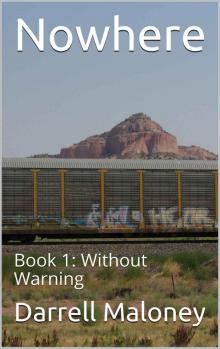 Without Warning
Without Warning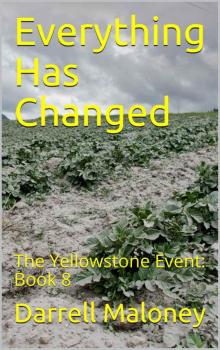 Everything Has Changed
Everything Has Changed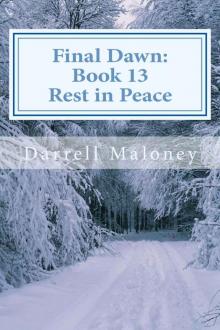 Rest in Peace
Rest in Peace This Changes Everything
This Changes Everything The Final Chapter
The Final Chapter It Can't Be Her
It Can't Be Her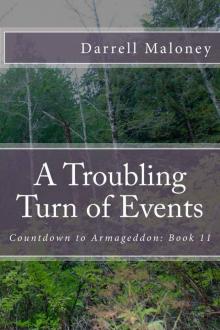 A Troubling Turn of Events
A Troubling Turn of Events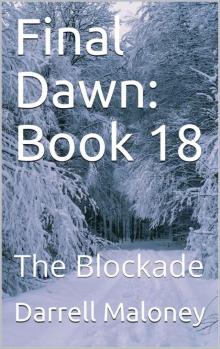 The Blockade
The Blockade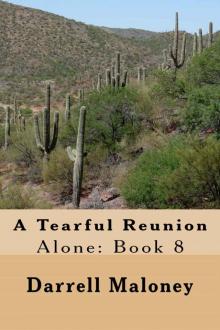 A Tearful Reunion
A Tearful Reunion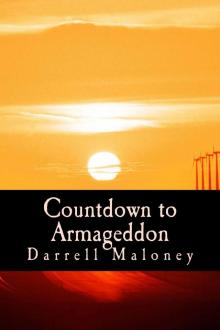 Countdown to Armageddon
Countdown to Armageddon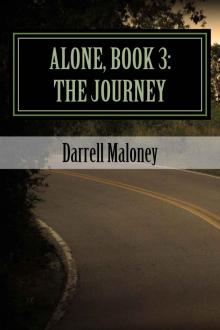 Alone, Book 3: The Journey
Alone, Book 3: The Journey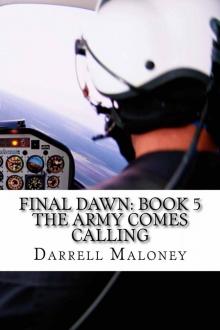 The Army Comes Calling
The Army Comes Calling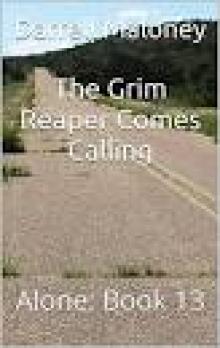 The Grim Reaper Comes Calling
The Grim Reaper Comes Calling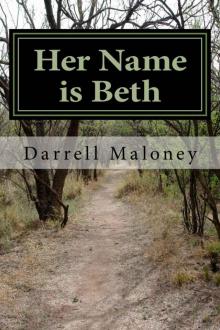 Her Name is Beth: Alone: Book 5
Her Name is Beth: Alone: Book 5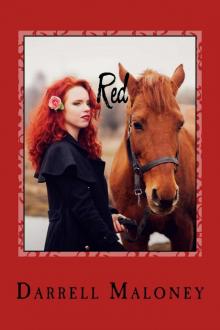 Red: The Adventure Begins
Red: The Adventure Begins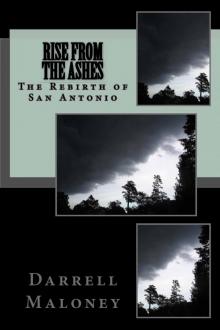 Rise From The Ashes: The Rebirth of San Antonio (Countdown to Armageddon Book 3)
Rise From The Ashes: The Rebirth of San Antonio (Countdown to Armageddon Book 3)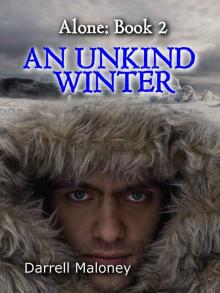 An Unkind Winter (Alone Book 2)
An Unkind Winter (Alone Book 2)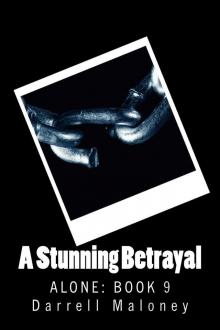 A Stunning Betrayal: Alone: Book 9
A Stunning Betrayal: Alone: Book 9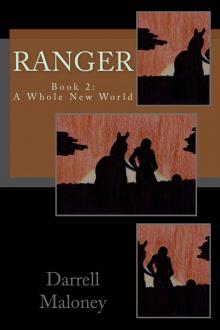 A Whole New World: Ranger: Book 2
A Whole New World: Ranger: Book 2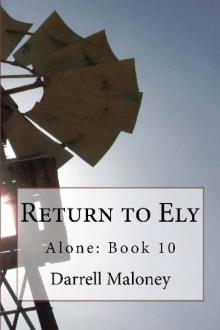 Return To Ely
Return To Ely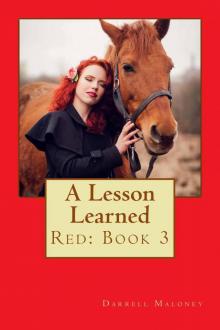 A Lesson Learned: Red: Book 3
A Lesson Learned: Red: Book 3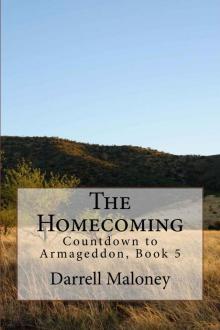 The Homecoming: Countdown to Armageddon: Book 5
The Homecoming: Countdown to Armageddon: Book 5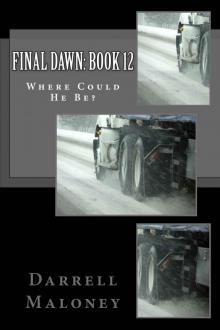 Final Dawn: Book 12: Where Could He Be?
Final Dawn: Book 12: Where Could He Be?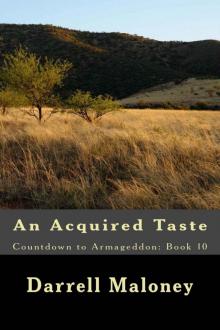 An Acquired Taste
An Acquired Taste On Desert Sands: Alone: Book 6
On Desert Sands: Alone: Book 6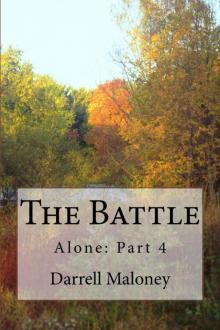 The Battle: Alone: Book 4
The Battle: Alone: Book 4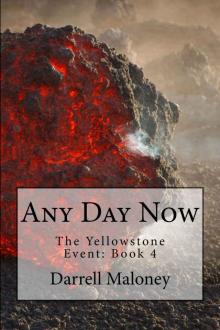 Any Day Now
Any Day Now Too Tough To Tame: Red: Book 2
Too Tough To Tame: Red: Book 2 No Help From Austin: Red: Book 5
No Help From Austin: Red: Book 5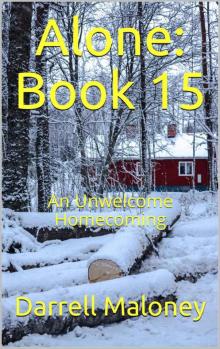 An Unwelcome Homecoming
An Unwelcome Homecoming A New Start: Final Dawn: Book 9 (Volume 9)
A New Start: Final Dawn: Book 9 (Volume 9)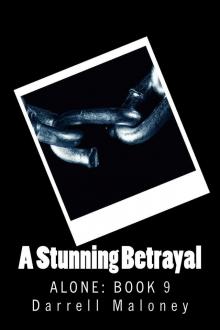 A Stunning Betrayal
A Stunning Betrayal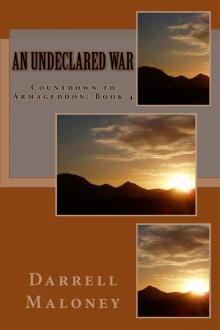 An Undeclared War (Countdown to Armageddon Book 4)
An Undeclared War (Countdown to Armageddon Book 4) One of Our Own: Final Dawn: Book 11
One of Our Own: Final Dawn: Book 11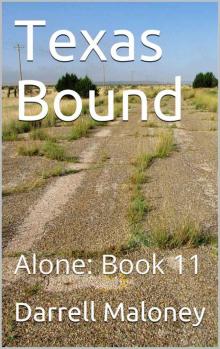 Texas Bound: Alone: Book 11
Texas Bound: Alone: Book 11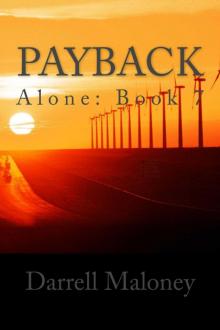 Payback: Alone: Book 7
Payback: Alone: Book 7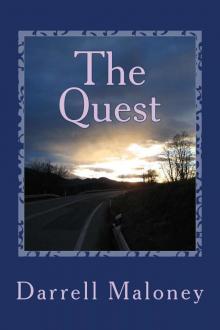 The Quest: Countdown to Armageddon: Book 6
The Quest: Countdown to Armageddon: Book 6 The Siege
The Siege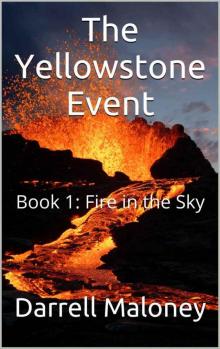 The Yellowstone Event: Book 1: Fire in the Sky
The Yellowstone Event: Book 1: Fire in the Sky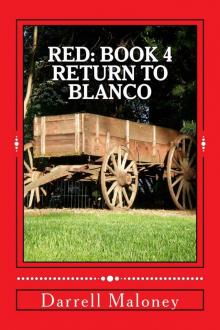 Return to Blanco (Red Book 4)
Return to Blanco (Red Book 4) The Search
The Search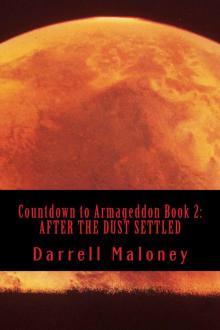 AFTER THE DUST SETTLED (Countdown to Armageddon Book 2)
AFTER THE DUST SETTLED (Countdown to Armageddon Book 2)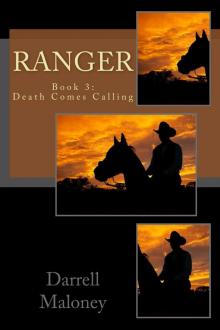 Death Comes Calling (Ranger Book 3)
Death Comes Calling (Ranger Book 3)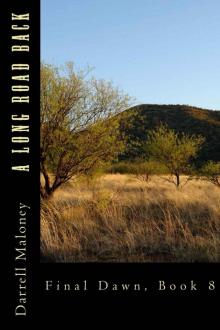 A Long Road Back: Final Dawn: Book 8
A Long Road Back: Final Dawn: Book 8